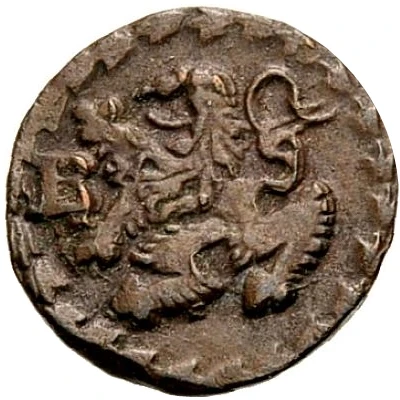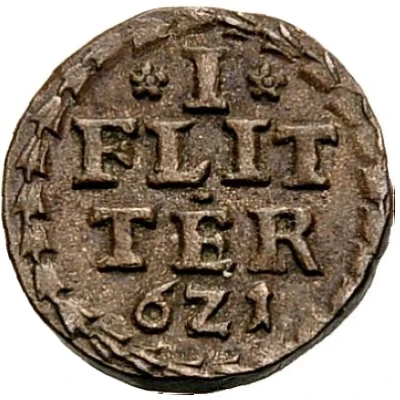


© Münzen & Medaillen GmbH
1 Flitter Kipper
| Copper | - | 13.5 mm |
| Issuer | City of Brunswick (German States) |
|---|---|
| Period | Free city |
| Type | Standard circulation coin |
| Years | 1620-1621 (1620-1622) |
| Value | 1 Flitter (1⁄648) |
| Currency | Thaler |
| Composition | Copper |
| Diameter | 13.5 mm |
| Shape | Round |
| Demonetized | Yes |
| Updated | 2024-10-05 |
| Numista | N#145190 |
|---|---|
| Rarity index | 93% |
Reverse
4-line inscription with date, where present, in wreath
Script: Latin
Lettering: I / FLIT / TER / (date)
Comment
Braunschweig (German pronunciation: [ˈbʁaʊnʃvaɪk] (About this soundlisten)) or Brunswick (/ˈbrʌnzwɪk/, from Low German Brunswiek [ˈbrɔˑnsviːk], Braunschweig dialect: Bronswiek), is a city in Lower Saxony, Germany, north of the Harz mountains at the farthest navigable point of the Oker River which connects it to the North Sea via the Aller and Weser Rivers. In 2016, it had a population of 250,704.A powerful and influential centre of commerce in medieval Germany, Braunschweig was a member of the Hanseatic League from the 13th until the 17th century. It was the capital city of three successive states: the Principality of Brunswick-Wolfenbüttel (1269–1432, 1754–1807, and 1813–1814), the Duchy of Brunswick (1814–1918), and the Free State of Brunswick (1918–1946).
Today, Braunschweig is the second-largest city in Lower Saxony and a major centre of scientific research and development.
Interesting fact
The 1 Flitter (Kipper) coin from the City of Brunswick (German States) was minted during a time of economic turmoil in the early 17th century. The coin was introduced as a replacement for the previously used silver coins, which had become scarce due to the Thirty Years' War. The use of copper for the 1 Flitter coin was a deliberate choice to address the shortage of silver, and it was a common practice during this period for coins to be made from base metals like copper. Despite its humble composition, the 1 Flitter coin remains a valuable collector's item for numismatists today.